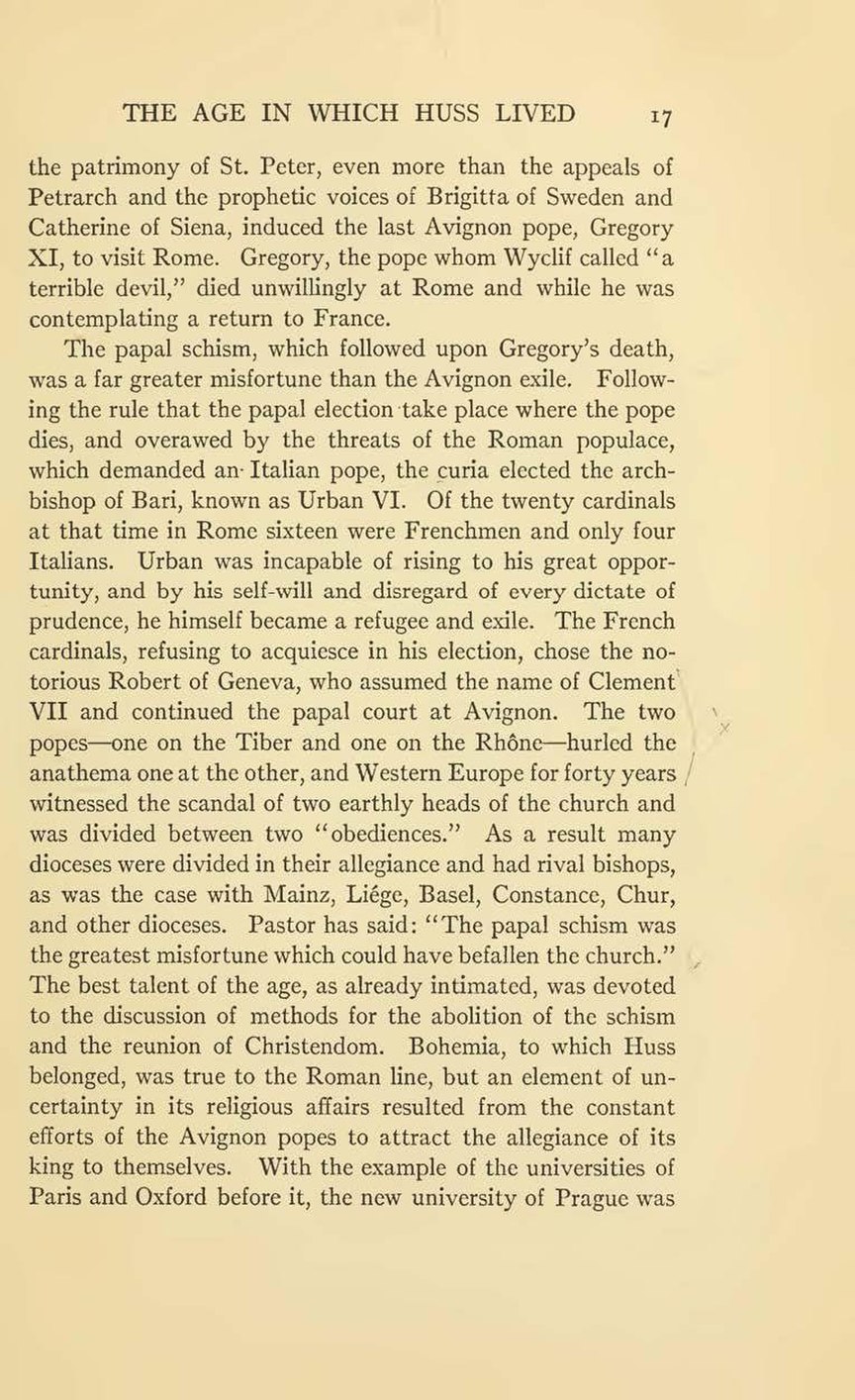the patrimony of St. Peter, even more than the appeals of Petrarch and the prophetic voices of Brigitta of Sweden and Catherine of Siena, induced the last Avignon pope, Gregory XI, to visit Rome. Gregory, the pope whom Wyclif called “a terrible devil,” died unwillingly at Rome and while he was contemplating a return to France.
The papal schism, which followed upon Gregory’s death, was a far greater misfortune than the Avignon exile. Following the rule that the papal election take place where the pope dies, and overawed by the threats of the Roman populace, which demanded an Italian pope, the curia elected the archbishop of Bari, known as Urban VI. Of the twenty cardinals at that time in Rome sixteen were Frenchmen and only four Italians. Urban was incapable of rising to his great opportunity, and by his self-will and disregard of every dictate of prudence, he himself became a refugee and exile. The French cardinals, refusing to acquiesce in his election, chose the notorious Robert of Geneva, who assumed the name of Clement VII and continued the papal court at Avignon. The two popes—one on the Tiber and one on the Rhône—hurled the anathema one at the other, and Western Europe for forty years witnessed the scandal of two earthly heads of the church and was divided between two “obediences.” As a result many dioceses were divided in their allegiance and had rival bishops, as was the case with Mainz, Liége, Basel, Constance, Chur, and other dioceses. Pastor has said: “The papal schism was the greatest misfortune which could have befallen the church.” The best talent of the age, as already intimated, was devoted to the discussion of methods for the abolition of the schism and the reunion of Christendom. Bohemia, to which Huss belonged, was true to the Roman line, but an element of uncertainty in its religious affairs resulted from the constant efforts of the Avignon popes to attract the allegiance of its king to themselves. With the example of the universities of Paris and Oxford before it, the new university of Prague was
